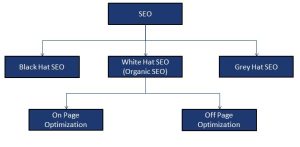1 . What is Search Engine Optimization?
SEO, short for Search Engine Optimization, is a critical digital marketing practice to enhance a website’s visibility and organic traffic on search engine results pages (SERPs). It involves various strategies, techniques, and optimizations to improve a website’s ranking and relevance in search engine algorithms. By understanding the intricacies of SEO, businesses and individuals can unlock the potential to attract more targeted visitors and increase their online presence.
[ez-toc]In a. By utilizing relevant keywords and creating compelling stories, we hope to connect with people and inspire action. With SemRevival, you can be sure your voice will be heard! highly competitive online landscape, SEO acts as a catalyst, enabling websites to stand out amidst competitors. It involves optimizing different aspects of a website, including its content, structure, and technical elements, to align with search engine guidelines and user preferences. By doing so, SEO helps search engines recognize the value and relevance of a website’s content, making it more likely to appear prominently in search results when users enter relevant queries.
Nowadays, almost all of our questions are answered by searching on Google. The fact that website and business owners attempt to make their material searchable on Google should not come as a surprise. And precisely that is what SEO entails: altering your content to improve its position in search results.
Custom Website Development, a platform that allows for simple customization and content updates and gives you the tools to optimize your site’s aspects, is the first step in achieving superb SEO.
Once the foundation of your website has been established, you must concentrate on several little components, such as metadata and linking, that might improve your rankings. This post will discuss how to implement those specifics, ensure that they adhere to Search Engine optimization rules, and ultimately increase SEO ROI.
After going through some of the fundamentals of SEO, we urge you to visit the SEM Revival site for Organic Search Engine Optimization Services, where you can get information on everything SEO-related, from beginner to advanced.
In the vast digital landscape, where millions of websites compete for attention, Search engine optimization (SEO) is pivotal in improving a website’s visibility and attracting organic traffic. Understanding the fundamentals of Search Engine Optimization and its different types is essential for businesses and individuals looking to rank higher on search engines. In this blog post, we will explore what Search engine Optimization SEO is, its various types, and practical strategies to enhance your website’s rankings.
2 . Importance of SEO for Websites
In today’s digital age, where the internet serves as a gateway to information, products, and SEO services, a solid online presence is paramount for businesses and individuals. Search Engine Optimization (SEO) ensures that users can quickly discover and access websites through search engines like Google, Bing, and Yahoo. Understanding the importance of Search Engine Optimization is crucial for anyone looking to establish a successful online presence. Let’s explore why Search Engine Optimization is essential for websites.
2.1 Increased Organic Traffic:
When a website ranks higher in search engine results pages (SERPs) for relevant keywords and phrases, it attracts more organic traffic. Users tend to trust and click on websites that appear at the top of the search results, making Search engine Optimization instrumental in driving targeted traffic to your website.
2.2 Enhanced User Experience:
SEO involves optimizing various aspects of a website, including its structure, content, and performance. These optimizations help search engines understand and index your website better and improve the overall user experience. A well-optimized website loads faster, is mobile-friendly, has easy navigation, and offers valuable content, resulting in higher user satisfaction and increased engagement.
2.3 Improved Brand Visibility and Credibility:
Ranking higher in search results instils trust and credibility in users. When your website appears on the first page of search results, it signals to users that search engines recognize it as a relevant and reputable source of information or products. This visibility increases brand exposure and helps establish your brand’s authority in your industry.
2.4 Targeted Audience Reach:
Search Engine Optimization allows you to target specific keywords and phrases that align with your target audience’s search intent. By optimizing your website’s content around these keywords, you increase the chances of reaching users who are actively searching for products, services, or information related to your business. This targeted reach leads to higher conversion rates and a more engaged audience.
2.5 Cost-Effective Marketing:
Compared to traditional advertising and paid Search Engine Marketing, SEO offers a cost-effective way to promote your website. While SEO requires time, effort, and expertise, it doesn’t involve ongoing payment for ad placements. Once your website ranks well organically, you can enjoy consistent traffic without additional advertising costs.
2.6 Long-Term Sustainable Results:
Unlike other marketing strategies that may yield short-term results, SEO focuses on long-term sustainability. While it may take time to see significant improvements in rankings, the benefits of SEO can have a lasting impact on your website’s visibility and traffic. You can maintain and improve your website’s performance over time by consistently implementing SEO best practices and adapting to search engine algorithms.
2.7 Competitive Advantage:
In today’s highly competitive online landscape, businesses that invest in SEO gain a competitive edge. Tips for search engine optimization to meet standards and outperform competitors increase your chances of capturing a larger market share. Search Engine Optimization helps you differentiate your website from the competition and stand out in the digital marketplace.
3 . What are the four types of SEO?
Regarding search engine optimization (SEO), different types encompass various strategies and techniques to enhance a website’s visibility and organic traffic. Understanding these types of SEO is essential for businesses and individuals looking to optimize their websites effectively. Let’s explore the three main types of SEO: On-Page SEO, Off-Page SEO, and Technical SEO.
3.1 On-Page SEO
Regarding search engine optimization, different types encompass various strategies and techniques to enhance a website’s visibility and organic traffic. Understanding these types of SEO is essential for businesses and individuals looking to optimize their websites effectively. Let’s explore the three main types of SEO: On-Page SEO, Off-Page SEO, and Technical Search Engine optimization.
Title Tags and Meta Descriptions
Crafting compelling and keyword-rich title tags and meta descriptions that accurately describe the content of a web page.
Keyword Optimization
Conducting keyword research and strategically incorporating relevant keywords into the web page’s content, headings, and meta tags.
Content Quality and Relevance
Creating high-quality, informative, and engaging content that meets the needs of the target audience and aligns with search intent
URL Structure and Formatting
Ensuring URLs are descriptive, concise, and user-friendly makes it easier for search engines and users to understand the page’s content.
Internal Linking
Linking relevant pages within the website to improve navigation, distribute link authority, and enhance user experience.
Image Optimization
Optimizing images using descriptive filenames and alt tags and compressing their file sizes to improve page load speed and accessibility.
Mobile-Friendly Design
Ensuring that the website and its content are responsive and optimized for mobile devices, providing a seamless user experience across different devices.
3.2 Off-Page SEO
Off-page search Engine Optimization enhances a website’s reputation and authority through outside factors. Here are a few crucial components of off-page SEO.
Backlink Building
Acquiring high-quality backlinks from reputable and relevant websites, as search engines consider backlinks a vote of confidence and authority.
Social Media Signals
Leveraging social media platforms to increase brand visibility, engage with the audience, and generate social signals that can indirectly influence search engine rankings.
Online Reputation Management
Monitoring and managing online reviews, ratings, and mentions to maintain a positive brand image and reputation.
Influencer Marketing
Collaborating with influential individuals or brands to promote products or Organic Search Engine Optimization services, gaining exposure and expanding reach.
Guest Blogging
Writing informative and valuable content for other websites in exchange for backlinks, driving referral traffic, and improving search engine visibility.
3.2 Technical SEO
Technical SEO enhances a website’s technical components to improve performance and user experience. Critical elements of Technical Search Engine optimization include.
Website Speed and Performance
Optimizing page load times, minimizing server response times, and utilizing caching techniques to improve website speed and performance.
XML Sitemap
Creating and submitting an XML sitemap to search engines, enabling them to crawl and index web pages more efficiently.
txt File
Implementing a robots.txt file to guide search engine crawlers on which pages to crawl and index or restrict access to specific website areas.
Structured Data Markup
Implementing structured data markup, such as schema.org markup, provides search engines with additional content information and improves search result display.
Mobile Responsiveness
Ensuring the website is optimized for mobile devices, providing a seamless browsing experience across various screen sizes.
Website Security (HTTPS)
Securing the website with an SSL certificate and implementing HTTPS encryption to protect user data, enhance trust, and potentially improve search rankings.
Understanding the different types of SEO allows website owners and marketers to develop a comprehensive optimization strategy that incorporates all essential aspects. By implementing effective On-Page, Off-Page, and Technical Search Engine Optimization practices, businesses and individuals can improve their website
How to Use SEO to Rank on Search Engines?
How to do SEO for beginners?
Implementing effective strategies is crucial if you want to improve your website’s visibility and rank higher on search engines. Here are some essential steps to help you achieve better search engine rankings:
Keyword Research
Conduct thorough keyword research to identify relevant keywords and phrases that align with your target audience’s search intent. Utilize keyword research tools to discover high-volume keywords with lower competition. Consider long-tail keywords, which are more specific and have higher conversion potential.
On-Page Optimization
Optimize your web pages by incorporating the identified keywords in strategic locations. This includes optimizing title tags, meta descriptions, headers, and URLs. Ensure your content provides value, relevance, and a great user experience. Use descriptive and compelling titles and meta descriptions to attract clicks from search engine users.
Quality Content
Produce compelling, insightful, and high-quality material that speaks to the wants and needs of your target market. Concentrate on adding value and responding to their inquiries. Use relevant keywords naturally throughout your content, but avoid keyword stuffing, as it can negatively impact your rankings. Incorporate multimedia elements like images and videos to enhance user experience.
User Experience Optimization
Optimize your website for a seamless user experience. Ensure fast loading times by optimizing image sizes, leveraging browser caching, and minimizing code. Make your website mobile-friendly to accommodate users browsing on smartphones and tablets. Improve navigation and site structure to make it easy for users and search engines to navigate and understand your content.
Link Building
Build high-quality backlinks from authoritative and relevant websites. This can be achieved through various strategies such as guest blogging, creating shareable content, contacting influencers or Search Engine Optimization Consultants for collaborations, and participating in online communities. Backlinks signal to search engines that your website is trustworthy and valuable.
Social Media Engagement
Leverage social media platforms to increase brand awareness, drive traffic, and improve search engine rankings. Share your content on social media channels, engage with your audience, and encourage social sharing. Social media signals can indirectly impact search engine rankings.
Technical Optimization
Aim to get your website technically search engine optimized. Improve website speed and performance by minimizing HTTP requests, optimizing caching, and compressing files. Implement structured data markup to help search engines understand your content better. Provide an XML sitemap to ensure all your pages are scanned and indexed by search engines. Secure your website with HTTPS to enhance user trust and site security.
Continuous Monitoring and Analysis
Use web analytics tools to monitor your keyword rankings, track website traffic, and analyze user behaviour. Identify which strategies are working and which areas need improvement. Make data-driven decisions to refine your SEO efforts continually.
Local SEO Optimization
Local Search Engine Optimization Services
Optimizing for local search is essential if your business has a physical location or serves a specific geographic area. Claim and optimize your Google My Business listing, ensuring accurate and consistent information such as business name, address, and phone number (NAP). Customers should be encouraged to post evaluations because good ratings can help your business rank locally.
Monitor and Improve Page Load Speed
The speed at which a page loads is essential for user experience and search engine rankings. Utilize tools like GT Matrix or Google Page Speed Insights to check the speed of your website frequently. Optimize images, minify CSS and JavaScript files, enable browser caching, and consider using a content delivery network (CDN) to improve loading times.
Earn Quality Backlinks
Building high-quality backlinks from reputable and relevant websites is still a crucial aspect of SEO. Focus on creating valuable content that others naturally want to link to. Guest blogging, influencer outreach, and participating in industry forums or communities can help you earn authoritative backlinks. Avoid using low-quality or spammy link-building strategies because they can damage your website’s reputation.
Optimize for Voice Search
With the rise of voice assistants like Siri, Google Assistant, and Amazon Alexa, voice search optimization has become increasingly important. Voice search queries are typically more conversational and long-tail. Think about using long-tail keywords and natural language in your article. Respond concisely to frequently asked questions to increase your chances of appearing in voice search results.
Improve User Engagement Signals
User engagement signals, such as click-through rates (CTR), bounce rates, and time-on-page, are becoming more influential in search engine rankings. Create compelling meta titles and descriptions that entice users to click on your search results. Ensure your website provides a positive user experience, with straightforward navigation and valuable content encouraging users to stay on your pages.
Optimize for Mobile-First Indexing
With mobile devices driving a significant portion of web traffic, optimizing for mobile-first indexing is crucial. Ensure your website is mobile-friendly and responsive, providing a seamless experience across different devices. Test your site’s mobile usability using tools like Google’s Mobile-Friendly Test and make necessary adjustments to improve mobile performance.
Stay Updated with SEO Trends
SEO is a dynamic field that evolves continuously. Keep up with recent business trends, algorithm changes, and best practices. To stay informed, read respected SEO blogs, participate in SEO communities, and attend industry conferences or webinars. Continuously adapt your strategies to align with the changing SEO landscape.
By implementing these strategies and staying proactive in your SEO efforts, you can improve your website’s ranking on search engines, increase organic traffic, and ultimately grow your online presence. Remember, SEO success requires a long-term commitment, dedication, and a focus on providing value to your target audience.
SEO Case Study: Enhancing Organic Traffic for Apex Capital Dubai
Abstract:
This case study explores the successful implementation of search engine optimization (SEO) strategies for Apex Capital Dubai, a property website operating in the real estate industry. By leveraging Search engine Optimization techniques and best practices, Apex Capital Dubai improved its online visibility, increased organic traffic, and achieved higher rankings in search engine results pages (SERPs). This case study highlights the critical Search engine Optimization strategies implemented, the outcomes achieved, and the lessons learned throughout the process.
Introduction:
Apex Capital Dubai is a prominent property website catering to the real estate market in Dubai, United Arab Emirates. The company aims to connect buyers, sellers, and renters with the best properties in the region. To achieve its business objectives, Apex Capital Dubai recognized the importance of optimizing its online presence and attracting targeted organic traffic to its website. Thus, a Search engine Optimization campaign was initiated to enhance the website’s visibility and increase organic search rankings.
Objectives:
The primary objectives of the SEO campaign for Apex Capital Dubai were as follows:
- Improve the website’s visibility in search engine results.
- Increase organic traffic and relevant leads.
- Enhance the website’s overall user experience and on-site engagement.
- Strengthen the website’s authority and credibility within the real estate industry.
Methodology:
To achieve the set objectives, the following Search engine Optimization strategies were implemented:
3.1 Keyword Research:
A comprehensive keyword research process was conducted to identify the most relevant and high-performing keywords for the property market in Dubai. This involved analyzing search volume, competition, and user intent to select strategic keywords to target throughout the campaign.
3.2 On-Page Optimization:
The website’s on-page elements, including meta tags, headings, URLs, and content, were optimized with the identified keywords. The goal was to create keyword-rich, informative, and engaging content aligned with user search intent while adhering to the best practices of Search engine Optimization.
3.3 Technical SEO:
A thorough audit of the website’s technical elements, such as site speed, mobile-friendliness, URL structure, and crawlability, was conducted. Technical issues were identified and resolved to ensure optimal website performance and search engine accessibility.
3.4 Content Marketing:
A content marketing strategy was implemented to create and distribute high-quality, informative, and shareable content related to the Dubai property market. This included blog posts, articles, infographics, and videos to attract and engage the target audience.
3.5 Link Building:
A proactive link-building campaign was initiated to acquire high-quality backlinks from reputable websites within the real estate niche. This helped to establish the website’s authority and improve its search engine rankings.
Results:
The implementation of the Best Search engine Optimization strategies yielded significant results for Apex Capital Dubai:
4.1 Improved Rankings:
The website’s rankings for targeted keywords showed a consistent upward trend. This led to increased visibility in SERPs, allowing Apex Capital Dubai to capture a larger share of organic search traffic.
4.2 Increased Organic Traffic:
The website experienced a substantial increase in organic traffic, resulting in more qualified leads and potential customers. This surge in traffic was driven by improved search engine visibility and enhanced keyword targeting.
4.3 Enhanced User Experience:
Optimization efforts positively impacted the website’s user experience, reducing bounce rates, increasing time on-site, and improving engagement metrics. The website’s overall performance and user satisfaction significantly enhanced as a result.
Lessons Learned:
Throughout the Search engine Optimization campaign for Apex Capital Dubai, several valuable lessons were learned:
5.1 SEO is an Ongoing Process:
SEO is not a one-time activity but rather a continuous process that requires regular monitoring, analysis, and adaptation to changes in search engine algorithms and user behaviour.
5.2 Content Quality is Key:
For SEO to be successful, the material must be of a high calibre, be educational, and be engaging. Success. Investing in content creation and distribution is essential to attract and retain organic traffic.
5.3 Authority Building is Essential:
Building a solid online presence and establishing the website’s authority within the industry is vital for long-term SEO success. Proactive link-building and collaboration with industry influencers contribute to enhancing the website’s credibility.
Conclusion:
Apex Capital Dubai significantly improved its online visibility, organic traffic, and search engine rankings by implementing a well-planned SEO strategy. The company achieved tangible results by focusing on keyword optimization, technical improvements, content marketing, and authority building. This case study underscores the importance of SEO for property websites. It demonstrates how Apex Capital Dubai successfully leveraged SEO to enhance its digital presence in Dubai’s competitive real estate market.






